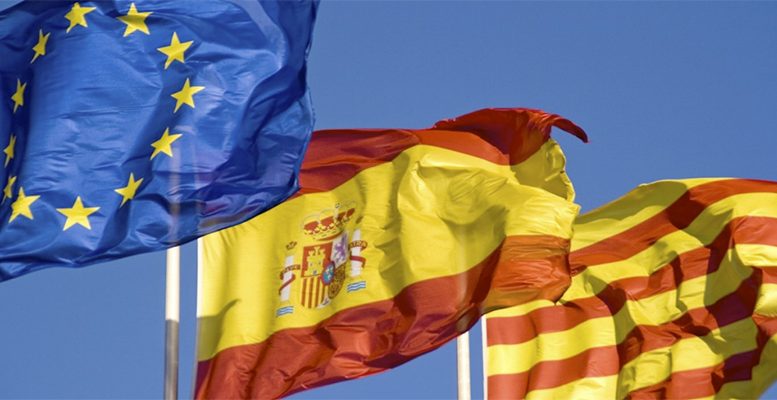Legend has it that the Catalan government’s press department separates the foreign media into two lists: those that sympathise with, or support, independence, and those that don’t.
I have no idea if this is true, but I couldn’t help but think of it when I was on the train to Barcelona the other day to interview the most prominent representatives there of the two sides of the Catalan question: the pro-independence regional president, Carles Puigdemont, and the leader of unionist party Ciudadanos in the region, Inés Arrimadas.
Reporting on Catalonia as a foreign journalist can be a hazardous business. Spaniards in general tend to monitor closely what we write about their country and the Catalan issue draws particularly keen attention. There are always those who will leap on something you have written, to use either as validation of their point of view, or confirmation of your own ignorant bias.
A recent The Economist article written by a colleague drew a fairly typical response, with several hundred comments in its wake. Among them was a reader who was “flabbergasted” by the content, while another described the dispatch as “myopic utterances clouded by the centralized Madrid press fog.”
I too have experienced below-the-line outrage, having been accused of both outright unionism and extreme pro-independence bias, as well as most things in between.
The problem is, it’s very difficult to get a clear-headed view of the Catalan question, given the sound and fury that surrounds it. In Madrid, much of the media and most commentators, — not to mention the big national parties — tend to be bewildered, if not outraged, by the secessionist drive. When in Catalonia (or at least speaking to independentistas), I find that the opposite is true: disenchantment with and disdain for the Spanish state is almost a given and the word “independence” tossed around as if it were a football.
When I met with Puigdemont, for example, he was adamant that an independent Catalonia could not possibly leave the EU. “That is evident and nobody can dispute it,” he told me. And yet, a couple of hours later, Arrimadas was disputing it, citing EU officials and national leaders to back up her argument. And the contradictory versions run through almost every issue related to Catalonia.
The journalist Víctor Colomer put it to me thus: “If you talk to a [Catalan] economist, he’ll tell you that Catalonia is an extremely profitable country and that when it’s independent it’ll be a great business and we’ll all be richer…And if you talk to another economist with the same qualifications, who’s studied at Harvard, say, but who is from Madrid, Seville, Bilbao or A Coruña, he’ll tell you the complete opposite.”
In short, there are two utterly opposed sides to this story, each of which needs to be heard – and that’s what makes the Catalan issue both compelling and infuriating. Beneath the bluster there are a thousand nuances related to trade, industry, debt, EU membership, politics, the judiciary, language, history and identity – but few easy answers can be found among them.
Next time I am covering Catalonia, perhaps the easiest thing would be to get off the train somewhere in the plains of Aragón, and ponder it all at an equal distance from both Madrid and Barcelona.
As for those legendary lists of pro-and anti-independence media: if they exist, I still don’t know which one I’m on. Perhaps it’s better that way.





